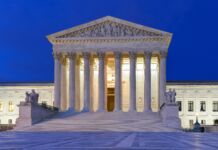
The week of February 25, 2019 was relatively busy for Texas Anti-Slapp opinions, but no new ground was broken.
First up, Judge David Godbey of the US. NDTX weighed in on his view that the Texas Anti-Slapp does not apply in federal court for similar reasons discussed in prior posts. See William Noble Rare Jewels, L.P. v. Sky Global L.L.C. & Ryan Rich, 2019 WL 935954 (NDTX Feb 2019)..
Second, the Tyler COA issued another opinion applying Texas Anti-Slapp to a hospital lien dispute but determining the commercial speech exemption applied. See Keantae Berry v. ETX Successor Tyler F/KA Texas Medical Center, NO. 12-18-00095-CV (Tyler COA Feb. 2019). This is the second opinion following the same analysis and the second loss for the same hospital trying to use the Texas Anti-Slapp to defeat hospital lien disputes. ETX Successor Tyler f/k/a East Texas Medical Center v. Terrie Pridgeon, as Guardian of the Person and Estate of Jason C. Dubos, NO. 12-18-00083-CV, 2019 WL 623603 (Tyler COA 2019).
Lastly, the Dallas COA rejected an appeal of the grant of a Texas Anti-Slapp motion dismissing IIED and defamation claims. See Keisha Pope-Nixon v. Jeanine Howard and Alvin Green, DC-18-02907 (Dallas COA 2019). The trial court had not yet determined the issue of attorneys’ fees when the non-movant filed the appeal. On a request for briefing from the parties, the non-movant took the position that the trial court’s order resolved the dispute in its entirety and failed to rule on the attorneys’ fees during the thirty (30) day statutory window. While I did not pull the briefing, my educated guess is the non-movant was trying to argue (or set up an argument for later use) that the attorneys’ fees should be denied based on the lack of a timely ruling.
This is not the first time I’ve seen this argument on the timing of the ruling on attorneys’ fees raised and rejected. It appears that non-movants are trying to use this as a tactic neutralize potential fee awards. Nonetheless, the Dallas COA did not take the bait and determined that it lacked jurisdiction because the issue of attorneys’ fees remained outstanding.
Not only has non-movant potentially increased the amount of fees she will ultimately be responsible for, this trip to the COA has caused a further delay in a final resolution (and potentially set up another trip to the Dallas COA, and perhaps beyond).






